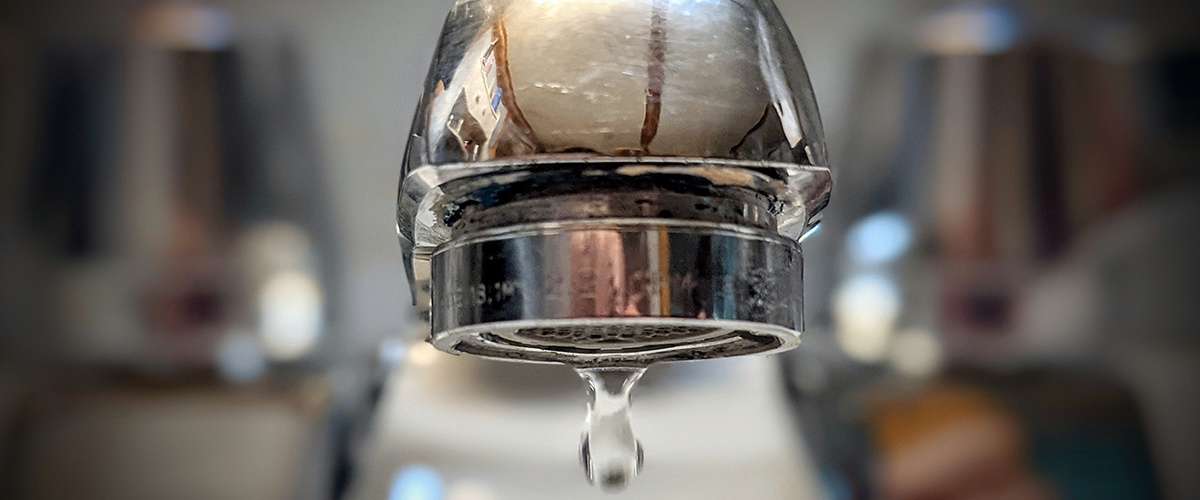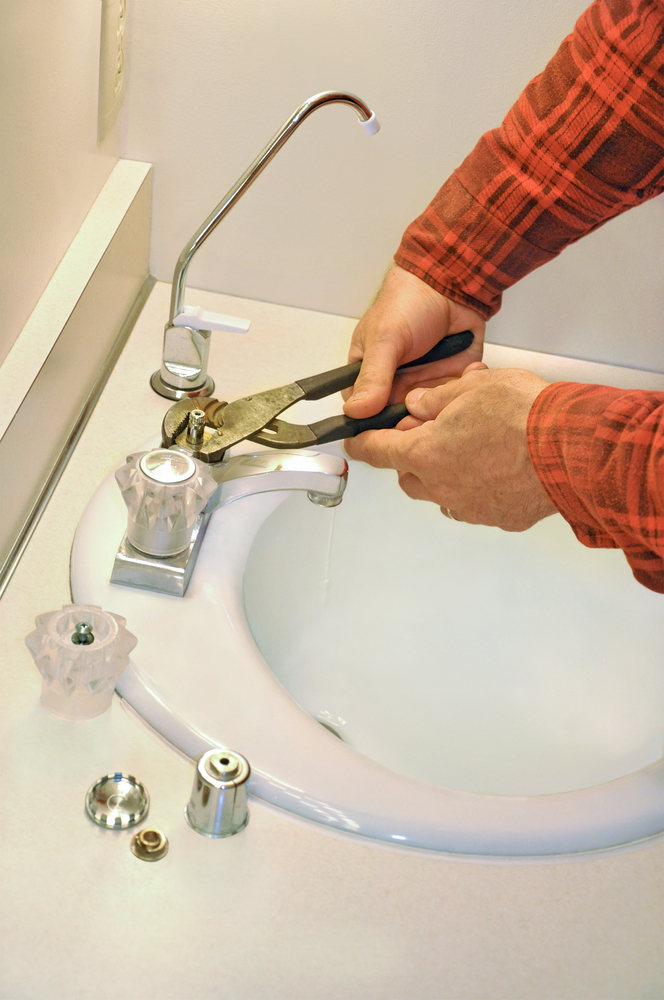The writer is making several great points on 4 Common Reasons for a Leaky Faucet overall in the content further down.

Trickling taps could feel like a small trouble, however their effect exceeds simply the nuisance of the noise. From wasting water to incurring unnecessary monetary expenses and health and wellness risks, disregarding a dripping faucet can bring about different consequences. In this short article, we'll delve into why it's critical to resolve this typical home issue immediately and efficiently.
Wastage of Water
Environmental Effect
Dripping faucets add dramatically to water wastefulness. According to the Epa (EPA), a single faucet trickling at one drip per secondly can squander more than 3,000 gallons of water annually. This not only pressures water resources yet likewise affects ecological communities and wild animals depending on them.
Step-by-Step Guide to Dealing With a Dripping Tap
Devices Called for
Before trying to take care of a dripping faucet, gather the needed tools, consisting of an adjustable wrench, screwdrivers, substitute parts (such as washing machines or cartridges), and plumber's tape.
Common Tap Issues and Their Solutions
Recognize the kind of tap and the particular problem triggering the drip. Typical issues include damaged washers, corroded valve seats, or damaged O-rings. Refer to producer instructions or on-line tutorials for detailed assistance on fixings.
Financial Prices
Enhanced Water Costs
Beyond the ecological effect, dripping faucets can blow up water expenses significantly. The gathered wastefulness in time converts right into higher utility expenditures, which could have been stayed clear of with timely repair services.
Possible Building Damages
In addition, prolonged leaking can bring about harm to fixtures and surfaces bordering the tap. Water accumulation can cause staining, rust, and even structural problems if left ignored, causing added fixing costs.
Health Issues
Mold And Mildew and Mold Growth
The consistent visibility of moisture from a dripping faucet creates an optimal setting for mold and mold development. These fungis not just jeopardize indoor air high quality however likewise present health and wellness dangers, especially for individuals with respiratory system conditions or allergies.
Waterborne Diseases
Stagnant water in dripping taps can come to be a breeding place for germs and other microorganisms, boosting the threat of waterborne conditions. Impurities such as Legionella germs prosper in stationary water, potentially resulting in major diseases when ingested or breathed in.
Do it yourself vs. Specialist Fixing
Benefits and drawbacks of DIY Repair Work
While some may try to take care of a leaking tap themselves, do it yourself fixings feature their very own set of challenges. Without appropriate knowledge and tools, do it yourself attempts can worsen the problem or lead to incomplete repair work, lengthening the issue.
Benefits of Hiring an Expert Plumber
Working with an expert plumber makes certain that the underlying source of the dripping faucet is attended to effectively. Plumbings have the know-how and equipment to detect and repair faucet problems successfully, conserving time and decreasing the threat of additional damage.
Ecological Responsibility
Individual Payment to Conservation
Taking responsibility for repairing dripping faucets lines up with wider efforts towards water preservation and environmental sustainability. Every person's activities collectively make a significant influence on maintaining precious resources.
Sustainable Living Practices
By prioritizing timely repair work and adopting water-saving habits, individuals add to lasting living practices that benefit both present and future generations.
Preventive Measures
Regular Upkeep Tips
To avoid leaking taps, do routine maintenance such as cleaning up aerators, inspecting for leaks, and changing damaged parts without delay. Furthermore, think about setting up water-saving tools or updating to much more effective components.
Significance of Prompt Repair Works
Dealing with leaking faucets as soon as they're discovered avoids further water wastage and prospective damages, eventually conserving both water and cash over time.
Influence On Residential Or Commercial Property Worth
Assumption of Well-Maintained Property
Preserving a residential property in good condition, consisting of dealing with maintenance concerns like dripping faucets, boosts its viewed worth and desirability among potential purchasers or renters.
Influence on Resale Value
Characteristics with well-kept plumbing fixtures, including faucets, command greater resale worths in the real estate market. Addressing trickling taps can add to a positive impression throughout property inspections and negotiations.
Conclusion
Addressing a leaking faucet surpasses mere comfort; it's a vital step towards saving water, minimizing monetary costs, and securing health and residential or commercial property. Whether with DIY repair services or specialist assistance, doing something about it to fix leaking taps is a tiny yet impactful means to advertise liable stewardship of resources and contribute to a much healthier, much more lasting future.
How to Fix a Leaky Faucet: Step-by-Step Repair Guide
A leaky faucet may seem like a simple annoyance, but if it's not fixed promptly, that leak could cost hundreds to potentially thousands. From water damage to mold, mildew, and high water bills, even a tiny leak can be catastrophic if left unattended. Damage like this can even affect the overall value of your home, so it's important to take the right approach for leaky faucet repair. You may need the help of a plumber in some cases, but we've got a few tips you can try on how to fix a leaky faucet before calling the pros.
Four Faucet Types
When you're learning how to fix a leaky faucet, the first step is knowing what kind of faucet you're working with! There are four common types.
Cartridge Faucets
Cartridge faucets come in one- or two-handled varieties. In one-handled cartridge faucets, hot and cold water combines in a single cartridge. In the two-handled versions, hot and cold water are controlled separately and mixed in the faucet.
Ball Faucets
Ball faucets have a single lever you push up and down to adjust the pressure and rotate to change the temperature. A slotted metal ball controls the amount of water allowed into the spout.
Compression Washer Faucets
They're the oldest type of faucet, but they're still used in many homes — especially older ones. Compression faucets have two separate handles that, when turned, raise or lower the washer that seals a water valve. This valve stops water from flowing through the faucet when it is turned off.
Disc Faucets
Disc faucets rarely need to be repaired due to their maintenance-free design. The water flow is controlled by two discs — the upper one raises and lowers against a fixed lower disc, creating a watertight seal. If your disc faucet starts leaking, you may need to replace the seals or clean residue buildup from the inlets.
Fixing a Leaky Faucet
Step 1: Turn Off the Water
Whether you're learning how to fix a leaky bathtub faucet or how to fix a leaky kitchen faucet, always turn off the water supply to your working area when you're fixing a leak. The last thing you want is a flood added to your list of things to fix.
Look for the shutoff valves below your sink or around the tub and turn them clockwise to stop the water flow. If your faucet doesn't have shutoff valves, you may need to turn off the water for the whole house. Check to make sure it's off by turning the faucet on. If nothing comes out, you're ready to start the repair.
Step 2: Take Apart the Faucet
How you disassemble your faucet depends on the type of fixture you have. You can use a flathead screwdriver to remove the caps on top of the handle or handles for cartridge and compression faucets. Inside, you should see handle screws. Unscrew these with a screwdriver to remove the handle.
Disc- and ball-style faucets will typically have an inlet screw near the handle, and removing that will reveal the interior of the faucet.
Detach the Valve Stem
For cartridge- and compression-style faucets, you'll see the inner valve stem or cartridge once you remove the faucet handles. If you have a compression faucet, unscrew the brass valve stem. If you have a cartridge faucet, pull out the cartridge. If your cartridge has been in place for a while, it may require some tools or extra force to remove it due to mineral deposits.
Examine and Replace Parts
Once you've removed the parts, check them out to confirm what needs to be replaced. You may see corroded rubber washers, O-rings, stems, or cartridges. On a ball-style faucet, check the seats and springs for damage.
If you need to repair a leaky disc faucet, check the inlet and seals on the lower disc.
Once you determine what parts must be replaced, visit your local hardware store. Bring the damaged parts with you to ensure you can purchase the correct components to replace them.
Clean Valves and Faucet Cavity
If you've removed a stem or cartridge, you may notice mineral buildup in the faucet's threads. Use white vinegar to clean the valve seat by soaking it for a few minutes, then scrub it away with a soft toothbrush and rinse with warm water. You can also clean the interior of the faucet in the same way.
Reassemble the Faucet
Once your faucet is cleaned and the required parts have been replaced, it's time to reassemble it. Put the pieces back together and slowly turn the water supply back on. Doing this slowly is crucial because too much initial water pressure can damage the new hardware you've just installed.
https://homewarranty.firstam.com/blog/how-to-fix-leaky-faucet

I was guided to that editorial about Should I Repair or Replace a Leaky Faucet? through a buddy on another website. If you please pause to share this entry if you appreciated it. We treasure reading our article about What Causes Leaky Faucets & How To Fix Them.